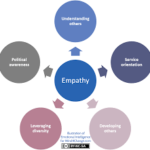The Art of Conflict Resolution: Strategies for Peaceful and Productive Conversation
Content:
Introduction:
Conflict is a natural part of human relationships, but how we handle conflicts greatly impacts the outcome and the quality of our relationships. The art of conflict resolution involves navigating disagreements in a constructive and respectful manner. In this article, we explore effective strategies for peaceful and productive conversation to resolve conflicts and strengthen relationships.
- Embracing a Positive Mindset:
Approaching conflict with a positive mindset sets the foundation for productive resolution. Viewing conflicts as opportunities for growth, understanding, and strengthening relationships helps shift the focus from blame to problem-solving. Adopting a mindset that values open communication, compromise, and mutual respect sets the stage for peaceful conflict resolution. - Active Listening:
Active listening is a fundamental skill in conflict resolution. It involves fully engaging in the conversation, focusing on the speaker, and seeking to understand their perspective without interruption or judgment. Active listening allows for better comprehension, empathy, and validation of each other’s feelings and concerns. - Effective Communication:
Clear and effective communication is essential during conflict resolution. Use “I” statements to express your feelings and needs without blaming or criticizing the other person. Avoid generalizations or assumptions and strive for clarity and specificity. Active and respectful communication creates an atmosphere of trust and understanding, promoting a constructive dialogue. - Finding Common Ground:
Identifying areas of agreement and common ground helps build a foundation for resolution. Look for shared interests or values that can serve as a starting point for finding mutually beneficial solutions. By focusing on common goals, both parties can work together to find creative and collaborative resolutions. - Seeking Understanding:
Empathy and understanding play a significant role in conflict resolution. Put yourself in the other person’s shoes to gain insight into their perspective, emotions, and needs. Validate their feelings and experiences, demonstrating empathy and creating an environment where both parties feel heard and understood. - Collaborative Problem-Solving:
Approach conflicts as shared problems that require collaborative problem-solving. Brainstorm possible solutions together, encouraging creativity and open-mindedness. Explore win-win options that address the needs and concerns of both parties. Working collaboratively fosters a sense of shared ownership and promotes a more satisfactory resolution. - Managing Emotions:
Emotions can escalate conflicts and hinder productive communication. Practice emotional self-regulation by taking breaks when necessary, focusing on deep breathing, and using calming techniques. By managing emotions, you can approach conflicts with a clearer and more rational mindset, promoting constructive dialogue and resolution. - Mediation and Third-Party Involvement:
In complex or deeply rooted conflicts, seeking mediation or involving a neutral third party can be beneficial. A skilled mediator can facilitate the conversation, ensure fair communication, and help guide the process toward a resolution. Mediation provides an unbiased perspective and can assist in finding mutually agreeable solutions. - Learning from Conflicts:
Conflicts offer opportunities for personal and relationship growth. After resolution, take time to reflect on the experience and identify lessons learned. Assess how conflicts can be avoided or managed better in the future, and implement strategies to prevent similar conflicts from arising.
Conclusion:
Mastering the art of conflict resolution is crucial for maintaining healthy and harmonious relationships. By adopting a positive mindset, practicing active listening, effective communication, and collaborative problem-solving, conflicts can be resolved peacefully and productively. Embracing conflicts as opportunities for growth and learning fosters stronger relationships built on trust, understanding, and respect.




